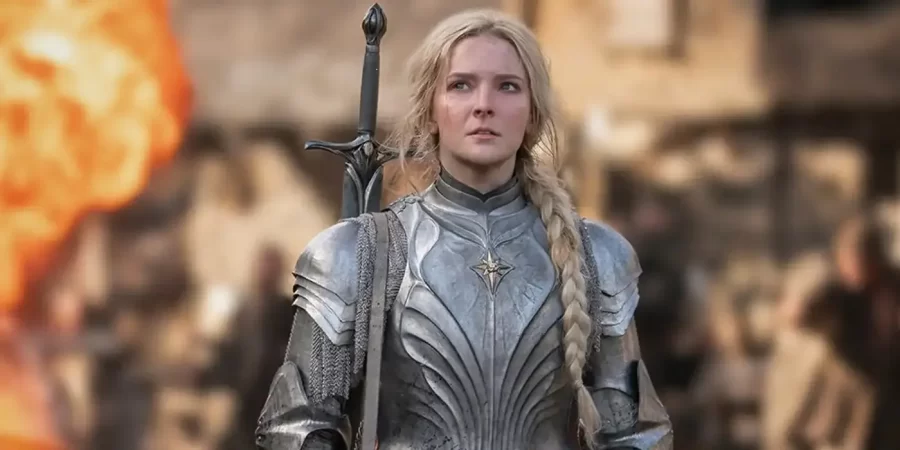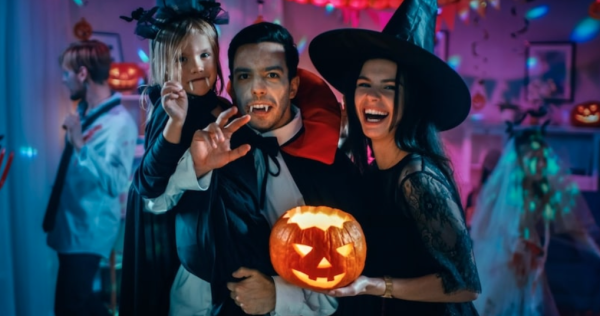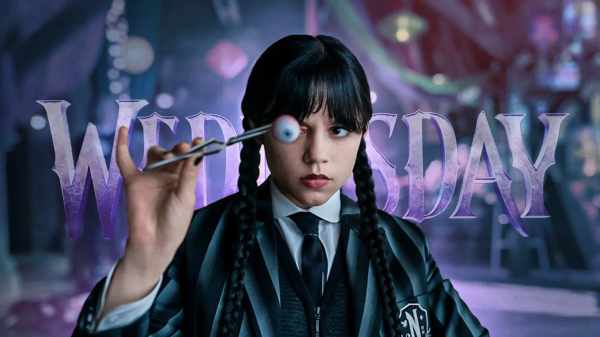The Rings of Power: A Feeble Beginning
Long before the events of The Lord of the Rings, Middle-Earth was an altogether different place. The very fabric of the world was torn asunder and reshaped by colossal battles between the gods and the Dark Lord Morgoth. In these days of old, elves did things other than sit in gazebos and proclaim the doom of men. As it happened, most of these things were murder. This is, in short, The Silmarillion. Now, out of the darkest reaches of Amazon comes the big-budget adaptation of something vaguely Silmarillion-shaped: The Lord of the Rings: The Rings of Power.
Set in the Second Age with loose adhesion to the canonical timeline, Rings of Power explores this younger Middle-Earth through a vast array of viewpoints. Based on its title and the suspiciously high ratio of characters who take an interest in smithing, it is quite possible that the show will include the forging of the rings of power. In the meantime, it cuts between every corner of the map as its numerous protagonists fight trolls, orcs, provincialism, and of course, themselves.
Rings of Power is an impressive spectacle, thanks to its striking visuals and rich, detailed locations that may well do justice to the mind of Tolkien himself. Yet, there is an emptiness beyond the beauty. The story itself is thus far disjointed and not altogether compelling. The dialogue is often stilted and unnatural, with odd moments of humor that would be better suited to a Marvel movie or D&D campaign. But these weaknesses are above all a result of the characters.
The show centers first and foremost on Galadriel — a familiar name, but a new face, played now by Morfydd Clark. Driven on a path of revenge after Sauron murders her unnamed brother, she leads others to their doom in an attempt to hunt down the prospective dark lord and thus stamp out evil in Middle-Earth. Galadriel possesses a fragile and untouchable beauty. She stares stoically past those who attempt eye contact. In battle, she dodges and stabs artfully, emerging unscathed even as her companions get their ribs caved in. There are no cracks in her facade—she even cries prettily. This all poses a major problem: she loses her credibility as a protagonist.
Galadriel is quickly becoming the archetype of the “strong female character” who lacks depth. Her femininity, of course, is not a weakness. Rather, the lack of consequences for her actions does nothing to characterize true strength. She talks about suffering, but we rarely feel it, physically or emotionally. She is presented as a flawed character as she leads her allies on a bleak and fruitless quest — one that culminates in those allies laying down their swords in protest and refusing to continue. Yet not one of her companions actually dies, even after suffering ridiculously fatal injuries like having a massive block of ice slammed down on them. The writers try to show us an idealistically vengeful woman blinded to the harm she is causing, yet they refuse to actually bloody her hands. The stakes of her moral conflict are low in all but words. Galadriel still has the potential for a satisfying fall from grace, but it must be done properly, and—I say this in the least sadistic way possible—we deserve to see her suffer.
Other characters from Tolkien’s canon like Elrond and Durin are reduced to comic relief. In fact, many of the show’s original characters are more compelling than those adapted from Tolkien’s work. Among these is Arondir, an elf with groundbreakingly short hair. Many have expressed their frustration at the short hairstyles worn by most of the male elves (what they fail to see is that the true missed opportunity was short-haired female elves). Regardless, Arondir wears the style well, and beyond that, he brings emotion and the elf/non-elf romantic subplot that is quintessential for any respectable Tolkien adaptation. His stoic glare outdoes that of Galadriel. His human love interest, by no fault of her own, is not very interesting. Despite her skillful orc decapitation (a win for feminism), she is largely defined by her relationship with Arondir.
Another such character is Halbrand, whom I at first dismissed as a blonder, greasier Aragorn. However, he has begun to show great promise, either as a villain or a corpse. He has been juxtaposed with Galadriel in a romantic sense, and since that is obviously not going to go anywhere, the only explanation for why they don’t end up together is that Halbrand will soon be evil, dead, or both.
Finally comes Nori Brandyfoot, a young hobbit who believes she has a destiny beyond the provincial horizons of her people. Nori’s wide-eyed wonder paired with her charmingly impulsive decision-making makes her a likable character — but her story is so disconnected from that of the others that it serves no clear purpose.
This flaw doesn’t just apply to Nori. Unlike its predecessors in the Tolkien universe, Rings of Power does not begin centered on one story that branches out as it progresses, but on several different characters with stories that have no relation to each other. Presumably, these will come to a confluence in the future, but until then, it is incredibly jarring to cut from one storyline to another, and what balance the writers attempt to strike slows down and distracts from the storytelling of each individual arc. All in all, Rings of Power is entertainment, but it’s not much more than that. Living up to The Lord of the Rings is an impossible task, but at times, Rings of Power seems to actively work against itself in that respect. Its refusal to meet its heroes’ actions with consequences lowers the stakes significantly. It tries to do so much all at once that it overextends its storytelling ability. It refuses to take risks, trying desperately to strike an acceptable balance to reach the highest profit, and in doing so, produces something of middling quality. Yet it is not without potential. In time, the threads laid down thus far may be woven into something truly great. But a story is more than its conclusion. With each passing week, redemption for Rings of Power seems further away.

Grade: 12
Years on Staff: 4
Why are you writing for The Flintridge Press?
I love stories of any kind. Writing and editing for the Flintridge...







